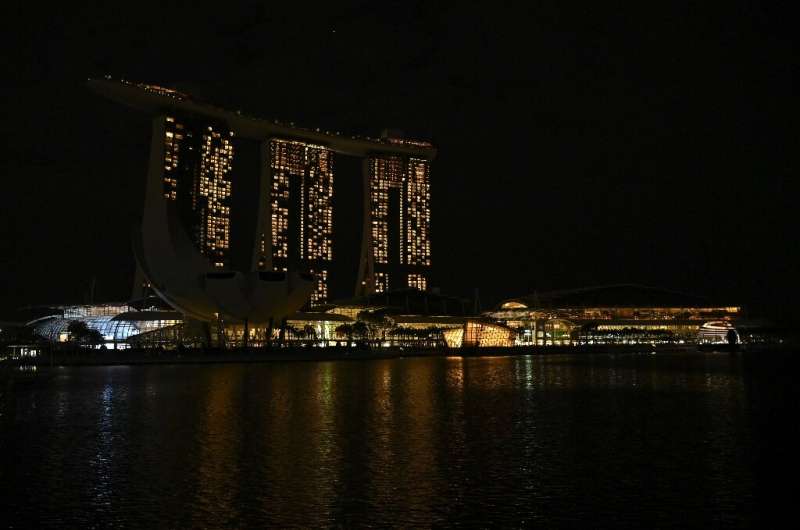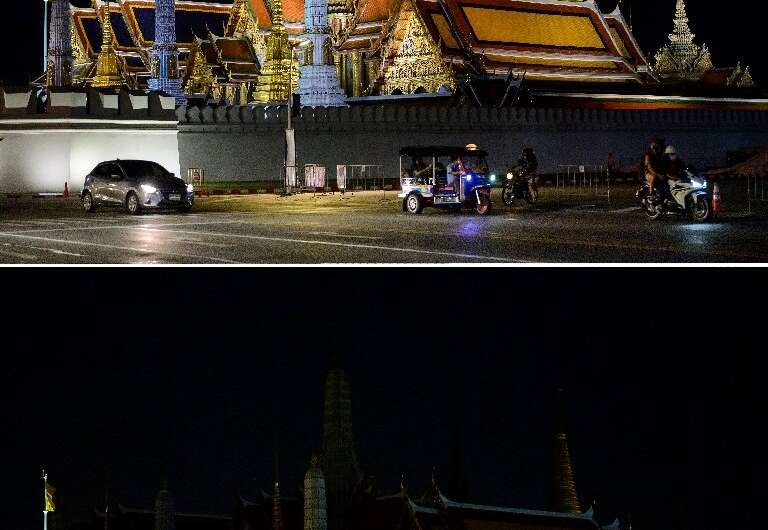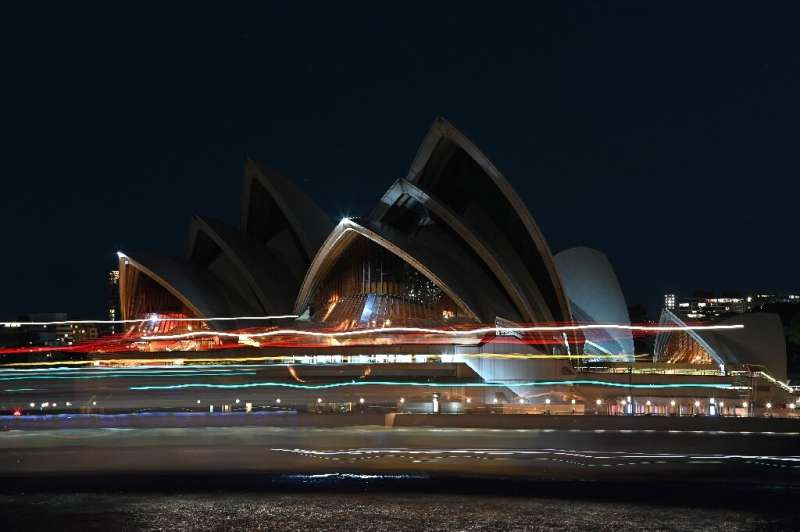
Cities around the world were turning off their lights Saturday for Earth Hour, with this year's event highlighting the link between the destruction of nature and increasing outbreaks of diseases like COVID-19.
Starting off the event, at 8:30 pm the skylines of Asian metropolises from Singapore to Hong Kong went dark, as did landmarks including Sydney Opera House.
The annual event calls for action on climate change and the environment, and this year, organisers said they want to highlight the link between the destruction of the natural world and the increasing incidence of diseases—such as COVID-19—making the leap from animals to humans.
Experts believe human activity such as widespread deforestation, destruction of animals' habitats and climate change are spurring this increase, and warn more pandemics could occur if nothing is done.
"Whether it is a decline in pollinators, fewer fish in the ocean and rivers, disappearing forests or the wider loss of biodiversity, the evidence is mounting that nature is in free fall," said Marco Lambertini, director general of the WWF, which organises Earth Hour.
"And this is because of the way we live our lives and run our economies.
"Protecting nature is our moral responsibility but losing it also increases our vulnerability to pandemics, accelerates climate change, and threatens our food security."

In Singapore, people at the waterfront watched as skyscrapers went dark and in a nearby park, Gardens by the Bay, a group of futuristic-looking tree sculptures had their lights turned off.
Earth Hour is about "more than just saving energy, it's more like remembering our impact on the environment," Ian Tan, 18, told AFP at the park.
But he was not convinced the event, which has been running since 2007, made much of a difference.
"One hour is not enough for us to remember that climate change is actually a problem—I don't really see (Earth Hour) as very significant," he said.

In Hong Kong, people at viewing points above the city watched as lights were dimmed on hordes of closely packed skyscrapers, while in the South Korean capital Seoul, the historic Namdaemun gate went dark.
In Thailand, Bangkok's ultra-popular CentralWorld mall counted down to 8:30 pm before its exterior glass displays went dark for an hour—though inside, the shopping centre appeared to operate as usual.
Other landmarks that were due to switch off the lights to mark Earth Hour include the Eiffel Tower, the Colosseum in Rome and the Brandenburg Gate in Berlin, according to organisers.
Explore further
© 2021 AFP
Citation: Cities worldwide turn off their lights to mark Earth Hour (2021, March 27) retrieved 27 March 2021 from https://ift.tt/3cpiZR4
This document is subject to copyright. Apart from any fair dealing for the purpose of private study or research, no part may be reproduced without the written permission. The content is provided for information purposes only.
"Hour" - Google News
March 28, 2021 at 02:05AM
https://ift.tt/3cpiZR4
Cities worldwide turn off their lights to mark Earth Hour - Phys.org
"Hour" - Google News
https://ift.tt/2WcHWWo
https://ift.tt/2Stbv5k
Bagikan Berita Ini














0 Response to "Cities worldwide turn off their lights to mark Earth Hour - Phys.org"
Post a Comment